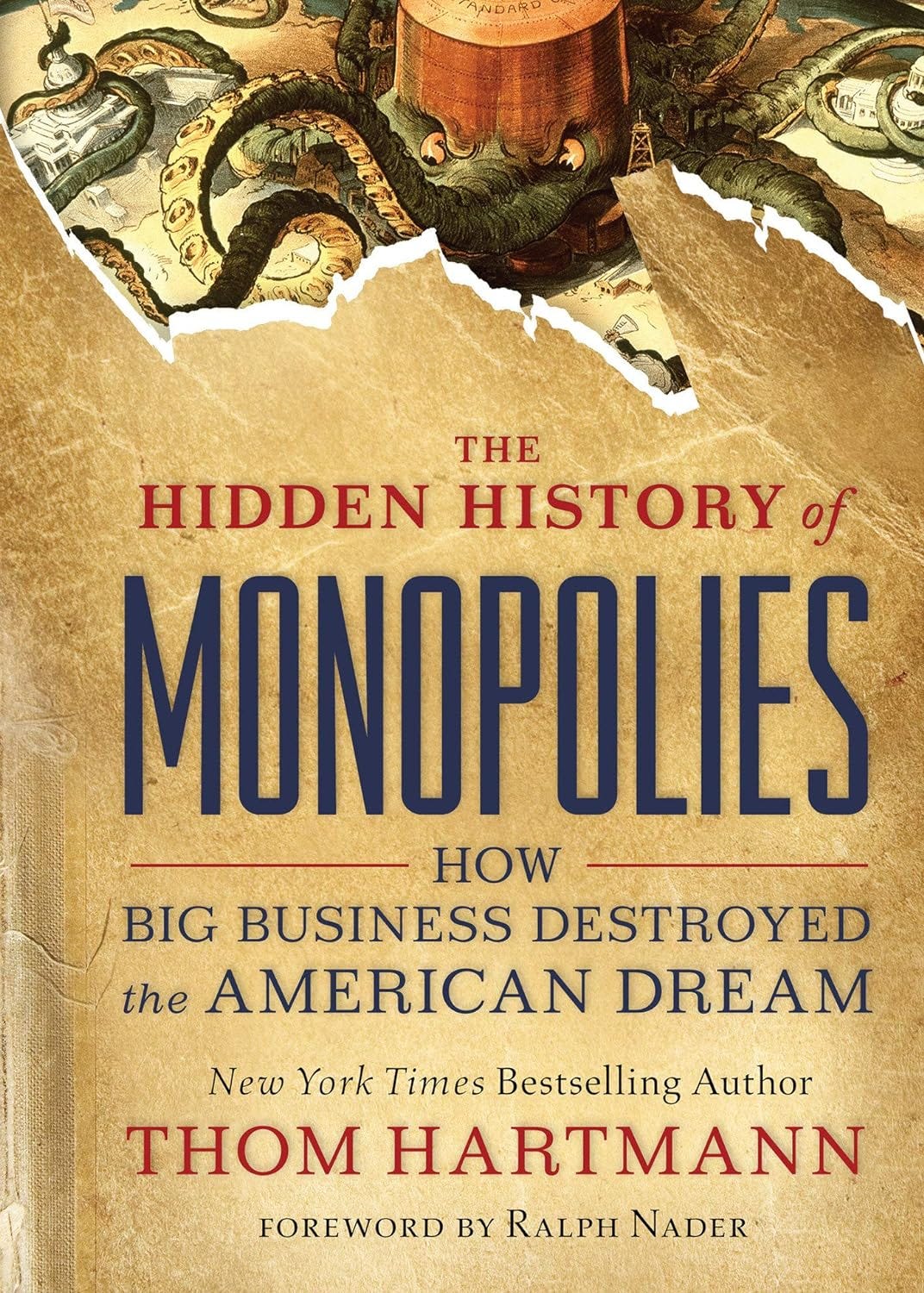
FOREWORD By Ralph Nader
This is the most important, dynamic book—small as it is—on the cancers of monopoly by giant corporations written in our generation. I have read many books on monopolistic practices and have written on this subject. None had the potential to reach the moral imagination and indignation of the American people, where they live, work, and raise their families, like Hartmann’s engrossing volume. None, for sure, had the potential to reach so many members of Congress who are finally awakening to the long-overdue accounting of monopoly’s many costs—economic and beyond economic—and the need to strengthen the old antitrust laws and enact the new ones that reach all the way to Silicon Valley.
Because he has for many years had a daily three-hour national radio talk show, Hartmann knows how to communicate importance to everyone, regardless of their self-described political persuasions. Because he is by far the most erudite longtime national radio talk show host, he has had an uncanny sense of retrieving critical segments of American history, ignored by historians, regarding the suspicion and caution our forebears had about this artificial entity called the large corporation as it became more immune and more privileged than real human beings.
It was Hartmann, a prolific published historian, who dug out the records surrounding the notorious 1886 Supreme Court case Santa Clara County v. Southern Pacific Railroad Co., where the scribe—formerly a railroad man—distorted the decision in his case summary to say that all corporations are “persons” for purposes of the 14th Amendment to our Constitution. It was Hartmann who rescued from history the heroic eff orts by our forebears to stop the ravaging structures of corporations, enabled by their corporate lawyers who wrote the very corporate laws allowing their clients to become lawlessly “lawful” before the lobbyists rammed them through state legislatures and Congress.
From the time in the 19th century when state legislatures held these corporations under charters that required renewal and even embraced a “corporate death penalty,” which Hartmann describes, giant corporatism has steadily imposed its corporate supremacy—profi t at any cost—over workers; consumers; communities; small taxpayers; public budgets; and, most crucially, the local, state, and national governments of our country. Relentlessly, there looms an ever-deeper corporate state—what President Franklin Delano Roosevelt called “fascism” in his 1938 message to Congress proposing a commission to investigate corporate power that also seized government power.
Today, giant corporatism—the commercialism of just about everything at the expense of our civilization’s civic, spiritual, health, and safety values, and other conditions needed for the well-being of future generations confronting poverty, addressing planetary climate crises, and averting nuclear war—is crushing our democracy. It is corrupting our elections and, astonishingly enough, controlling the vast commons—public lands; public airwaves; vast pension and mutual funds; and industry-creating, government-funded research and development—owned by the people.
We plan to see that Hartmann’s book is required reading by as many members of Congress as possible. You can galvanize its messages through discussion groups, library meetings, school adoptions, and simply talking it up with your circle of friends, neighbors, coworkers, and reporters.
Maybe you think the subject of monopoly is too legalistic or arcane. Start reading and see how many times you say “ouch” to yourself and perhaps decide to put this book on wheels for civic and government action. We need to rewrite the existing monopoly rules and enable quality competition and alert civic voice to shape a just and productive political economy.
An ancient Roman adage is pertinent: “What touches all must be approved by all.”
Ralph Nader
Washington, DC


